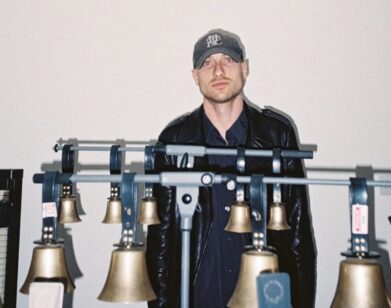Material Concerns: Isabelle Huppert

ISABELLE HUPPERT IN WHITE MATERIAL
FILM STILL COURTESY OF WHY NOT PRODUCTIONS
Over the past three decades, Isabelle Huppert has amassed a portfolio of complicated, utterly engrossing characters. Her performances in The Piano Teacher and La Cérémonie were ferocious and raw and stayed with you long after leaving the theater. Her work seems even more extraordinary when you meet her: in person, Huppert is complete graciousness packed into a tiny frame. Her latest film, Claire Denis’ White Material, continues her custom of playing maddening heroines. Her character is Marie Vidal, a coffee plantation owner in an unnamed African country who ignores the civil war that appears to be moments away from igniting. Huppert plays Marie as both an incredibly strong woman and one that is living in complete denial, undone by her love for the country and her family. It’s a powerful story, made even more so by Denis’ portrayal of child soldiers who, even when armed with guns and knives, want a toy to play with. We caught up with Huppert in New York, and talked about the shooting in the beautiful Cameroon and creating a Shakespearean tragedy.
MOHNEY: The film actually came from your idea to adapt the book The Grass is Singing [a 1950 book about a racist farm owner] with Claire Denis. Can you describe how you got from that book to this film, since they’re a bit different?
HUPPERT: That was how the whole project was initiated. Claire and I have been friends for years, she was always part of my artistic family. But Claire wasn’t interested in portraying this kind of woman [from the book], a victim. And maybe it was kind of obsolete problem—I mean, things have changed since that time. She was interested in creating a more active woman, more contemporary. She kept the idea of the white woman in Africa, and that’s all she kept.
MOHNEY: Maria, the character you play, is engrossing. But she can be infuriating when she refuses to believe that war is coming.
HUPPERT: It’s like the two sides of the medal—it’s the half-full or half-empty bottle. One can say that she’s stubborn or denying reality. But you can also say she’s so stubborn she doesn’t want to give up, and she thinks she can be bigger than everything and everyone else. In fact she just wants to save her harvest, she does not have larger ideas, she doesn’t want to save the world. She just wants to save her harvest. Along with that, she wants to stay in that country. She doesn’t see the danger because also she feels legitimate in that country. She has such a distance and relationship with that country she so cast a very different light on the setting. She isn’t defined by what she has, but what she is. It’s a fight in her—it’s a matter of life not a matter of possessions… She loves this sense of freedom that this country gives her. When you’re there, that’s what you sense. It’s a certain sense of joy—how beautiful the country is, and the landscape and the light. [It’s] something unusual.
MOHNEY: When you were shooting a film of Africa, with child soldiers and a post-colonial society, was there anything you were apprehensive about portraying?
HUPPERT: No! I think the movie has a Shakespearean aspect to it. Maybe because [screenwriter] Marie N’Diaye created this world of her own. The movie isn’t realistic, and isn’t to be taken as reality. It’s been rooted in an imaginary country, with its own sense of temporality, with all these flashbacks. It’s a dream and a nightmare. It gives [the film] such a freedom, instead of a real country with real events. This is not the dimension of this movie. That’s why it’s like a Shakespearean tragedy.
MOHNEY: It’s a family tragedy, but also a whole country’s tragedy. I was watching the movie on the edge of my seat—
HUPPERT: [Denis] is such an incredible director at capturing a sense of danger—the tension. I love all these shots when I come out of house and the house is empty and you feel a sense of—you feel the end of the world. She captures this kind of sensations.
MOHNEY: The family dynamic was very touching.
HUPPERT: Oh, the family dynamic was wonderful. Two houses, one more modern than the other, and my house more shabby and older and less well kept. By just showing this topography and geographical arrangement, everything is said about family ties. You have the new family and the former family, and yet an invisible thread is uniting them. They had a son together. It’s such a delicate way to speak about family ties that aren’t cut off. Even though he’s her ex-husband, he’s still her friend.
MOHNEY: You’ve done both American and European films; do you have a preference?
HUPPERT: Oh, it could be anything. I’m curious and you know, I really think cinema is strong medium that allows you to go to so many different mental countries, not just geographical countries. As far as it allows me to express something of my own truth, it’s fine for me. I can go to the moon.
MOHNEY: Does the language make a difference?
HUPPERT: It’s not a matter of preference. I’ve done many, many French movies and many, many English movies. I think it frees something when you don’t talk in your mother language, but I also think you withdraw something as well. I’m a French actress, and sometimes I speak in English-speaking roles. For me, being an actress was always being a traveler. It goes together.
WHITE MATERIAL WILL BE OUT IN LIMITED RELEASE ON NOVEMBER 19.






